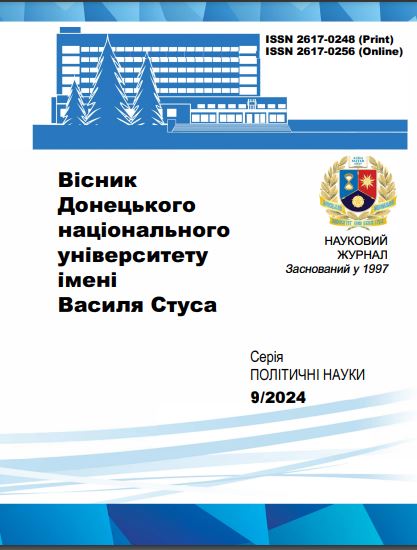Franco's Spain in the period of transition to the market economy, desarrolism and the "economic miracle"
DOI:
https://doi.org/10.31558/2617-0248.2024.9.9Keywords:
market economy, economic stabilization plans, desarrollism, opusdeists, IMF, technocrats, economic miracleAbstract
The article notes that the strategy of Spain's transition from autarky to a market economy is of particular scientific and applied interest. Its mechanisms, features and achievements are studied. According to the article, one of the motives for implementing the transition to a market strategy was the accumulation of negative social energy in society, which manifested itself in the strike struggle, the fulfillment of autarky tasks, the growth of inflation and consumer prices, etc. The author emphasizes that the success in the implementation of the market economy strategy was facilitated by Spain's acquisition of full subjectivity in international affairs, cooperation with international financial organizations, which is analyzed in the article.
The scientific research analyzes the mechanisms of the introduction of a liberal economy, it is indicated that the regime made a bet during the second stage of socio-economic policy on technocrats, who started with administrative reforms, namely: the law on the legal regime of state administration was adopted, according to which the ministry of affairs was created of the government, whose responsibilities included developing laws, programs, projects, settling conflicts between government structures, the position of deputy head of government was introduced, the implementation of plans for economic stabilization, etc. began.
The introduction of market mechanisms was successful and led to high growth rates and an "economic miracle". A conclusion is drawn, the essence of which lies in the revolutionary result of the "economic miracle", namely, the emergence of an influential middle class, which became the guarantee and stabilizing basis of the transformation and unique transition of Spain from authoritarianism to full-fledged democracy.
References
Bennassar Bartolome. Franco. Madrid: EDAF, 1996. 367 p.
Престон Пол. Франко: Биография. Пер. с англ. Ю.В.Бехтина. М.: ЗАО Изд-во Центрополиграф,
702 с.
Fusi Juan Pablo. Franco. Spanien unter der Diktatur. 1936–1975. Madrid: Edisiones RIAZP, 2001. 238 p.
Балагер Эскрива Хосе де. «Путь» (избранное). Латинская Америка. 1991. №12. С.29-37.
Gallo Max. Spain under Franco. New York: E.P. Dutton &Company, ins., 1974. 391 p.
Payne Stanley G. El Regimen de Franco. 1936-1975. Madrid: Alianza Editorial, 1987. 682 p.
Іваницька О.П. Іспанія у ХХ-ХХІ сторіччях: монографія. Вінниця: ТОВ «Нілан-ЛТД», 2017. 600 с.
Descola Jean. Oh Espana. Barcelona:Sibreria Editorial Arcos, S.A., 1976. 477 p.
Esteban Jorge de y Guerra Luis Lopes. La Crisis del Estado franquista. Barcelona: Planeta, 1977. 238 p.
Ruiz David. La Dictadura franquista. 1936-1975. Oviedo: Dopesa, 1978. 164 p.
Амандо де Мигель. 40 миллионов испанцев 40 лет спустя. Москва: Прогресс, 1985. 432 с.
Vilar S., Cierva R. de la. Pro y contra Franco. Barcelona: Planeta, 1985. 279 p.

